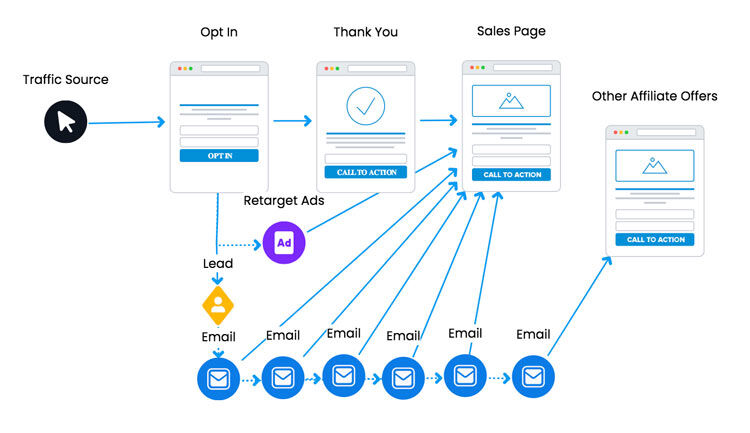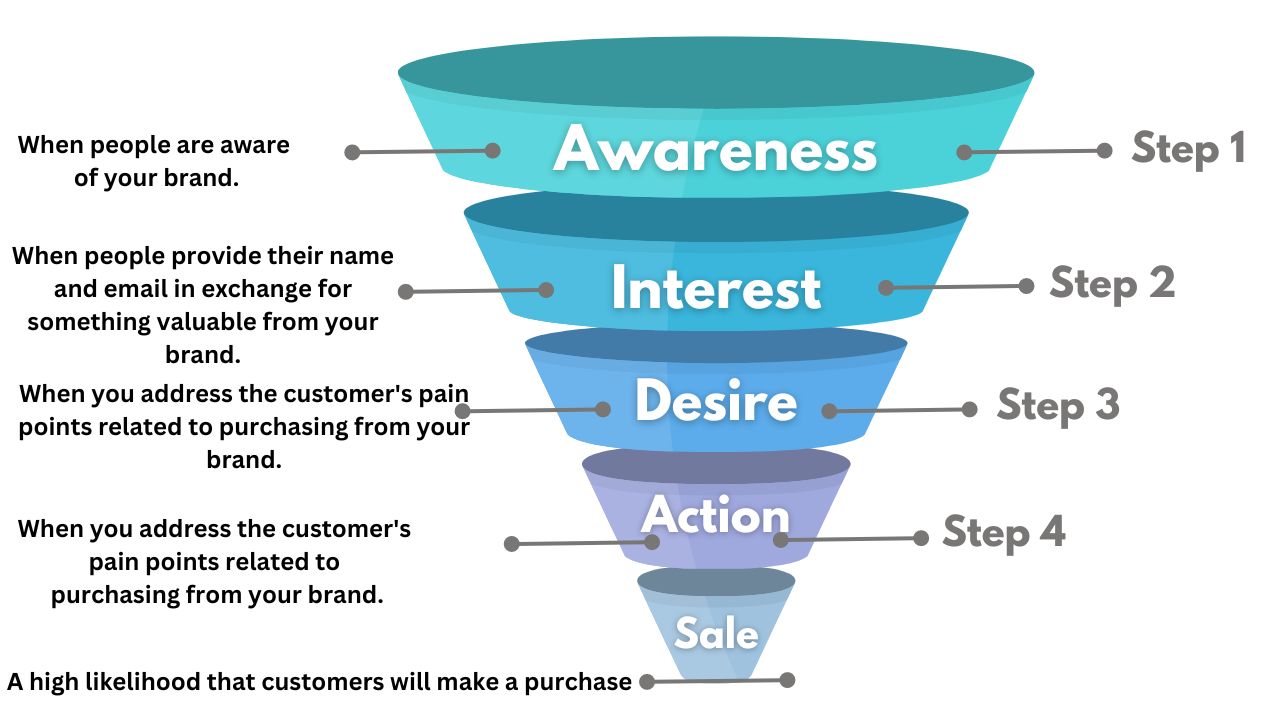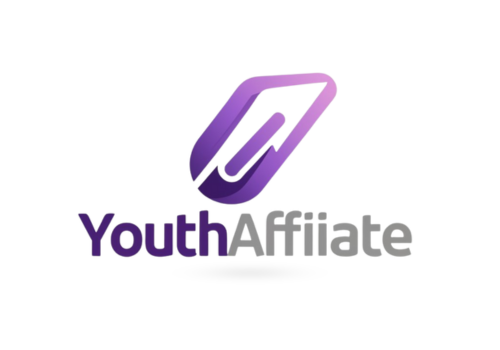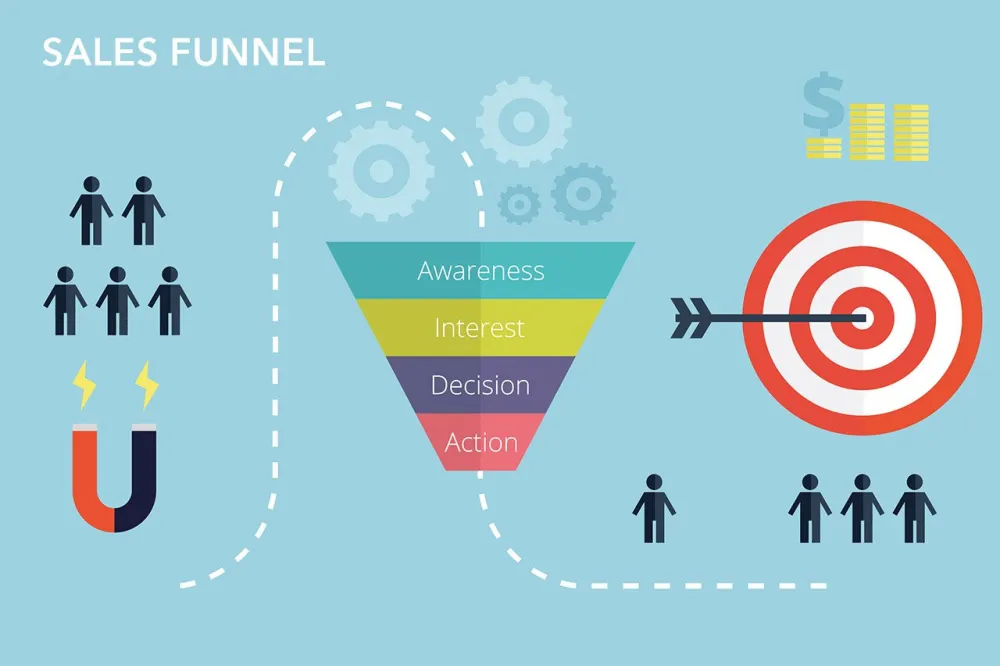In the world of digital marketing, funnels have become a crucial tool for businesses to convert leads into customers. But what exactly are funnels, and how can you set them up on your website?
In this post, we’ll delve into the world of funnels, exploring their definition, benefits, and step-by-step guide on how to set them up on your website.

1. What Are Funnels?
A funnel is a marketing concept that represents the journey a potential customer takes from being a lead to becoming a paying customer.
It’s called a funnel because it’s widest at the top, representing the largest number of potential customers, and narrows down to the bottom, representing the smallest number of converted customers.
In this post, we’ll delve into the world of funnels, exploring their definition, benefits, and step-by-step guide on how to set them up on your website.
Table of Contents
2. The funnel typically consists of several stages
– Awareness: When people are aware of your brand. The point when people start to notice your product or service for the first time.
– Interest: When people provide their name and email in exchange for something valuable from your brand. The stage where potential customers show interest in your product or service.
– Desire: When you address the customer’s pain points related to purchasing from your brand. The stage where potential customers desire your product or service.
– Action: When you address the customer pain points related to purchasing from your brand. The stage where potential customers take action and become paying customers.

3. Benefits of Funnels
Funnels offer several benefits to businesses
– Increased conversions: Funnels help guide potential customers through the buying process, increasing the chances of conversion.
– Improved customer experience: Funnels create a unique journey for potential customers, helping them feel appreciated and recognized.
– Enhanced analytics: Funnels provide valuable insights into customer behavior, helping businesses optimize their marketing strategies.
4. How to Set Up Funnels on Your Website
Setting up funnels on your website is easier than you think. Here’s an easy guide to help you begin, one step at a time.
- Define Your Funnel Stages: Identify the stages of your funnel, from awareness to action.
- Choose a Funnel Builder: Select a funnel builder tool like ClickFunnels, Unbounce, or Instapage.
- Design Your Funnel Pages: Create visually appealing pages for each funnel stage.
- Set Up Your Funnel Logic: Define the rules for each stage of your funnel, including what happens when a potential customer moves from one stage to the next.
- Integrate with Your Website: Embed your funnel pages on your website, ensuring a seamless user experience.
5. Best Practices for Funnel Setup
Here are some best practices to keep in mind when setting up funnels on your website
– Keep it simple: Avoid cluttering your funnel pages with too much information.
– Make it mobile-friendly: Ensure your funnel pages are optimized for mobile devices.
– Test and optimize: Continuously test and optimize your funnel pages for better performance.
6. Unlocking the Secrets of Funnel Hacking
In the world of digital marketing, funnel hacking has become a buzzword, with many entrepreneurs and marketers eager to learn its secrets. But what exactly is funnel hacking, and how can you become a skilled funnel hacker?
In this post, we’ll delve into the world of funnel hacking, exploring its definition, benefits, and strategies, as well as related concepts like funnel hacks, funnel hacking life, and funnel hacker.
7. What is Funnel Hacking?
Funnel hacking is the process of analyzing and replicating the sales funnels of successful businesses to create a profitable funnel for your own business.
It means finding out the methods, techniques, and tools that successful business people and marketers use to turn potential customers into real ones.
8. What is a Funnel Hacker?
A funnel hacker is someone who uses funnel-hacking techniques to create and optimize sales funnels for their own business or clients.
Funnel hackers are skilled at identifying and replicating successful funnel strategies, and they use this expertise to drive conversions and revenue.
9. What are Funnel Hacks?
Funnel hacks are strategies, tactics, and tools used to optimize sales funnels and increase conversions. These hacks can include everything from optimizing landing pages to using psychological triggers in marketing copy.
10. What is Funnel Hacking Live?
Funnel Hacking Live is an annual event hosted by ClickFunnels, a popular funnel-building platform.
The event brings together entrepreneurs and marketers to learn from industry experts and network with like-minded individuals.
11. Conclusion
Funnels are a powerful tool for businesses to convert leads into customers. By understanding what funnels are and how to set them up on your website, you can unlock the full potential of your digital marketing efforts.
Funnel hacking is a powerful tool for businesses to increase conversions and revenue. By understanding what funnel hacking is, what a funnel hacker does, and what funnel hacks are, companies can unlock the secrets of successful sales funnels.
Additionally, attending events like Funnel Hacking Live and learning from experts like Russell Brunson can help enterprises take their funnel-hacking skills to the next level.
Remember to keep your funnels simple, and mobile-friendly, and continuously test and optimize them for better performance.
12. Sources of funnel
(1) HubSpot. What is a Sales Funnel? Retrieved from
(2) MarketingProfs. How to Create a Sales Funnel That Works. Retrieved from
(3) Funnel Builders. Choosing the Best Funnel Builder for Your Business. Retrieved from
(4) Unbounce. The Ultimate Guide to Landing Page Design. Retrieved from
(5) ClickFunnels. How to Set Up Your Funnel Logic. Retrieved from
(6) Instapage. How to Embed Your Funnel Pages on Your Website. Retrieved from


